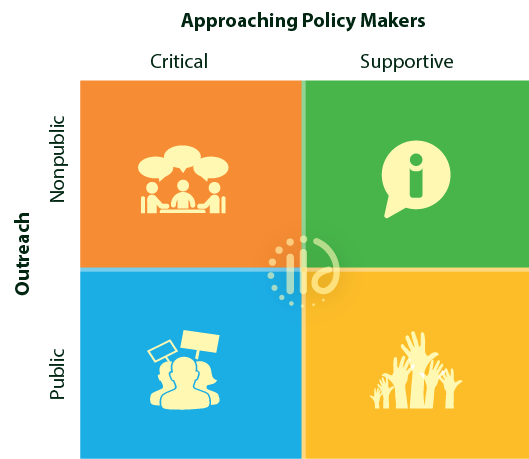Institute of Informatics and Development or IID is a public policy institute that promotes informed public participation in the public policy process.
IID is registered as a nonprofit organization in Bangladesh under Section 28 of the Companies Act 1994.
VISION
Making policy public for an informed, inclusive and democratic society.
IID seeks to achieve its vision with its 3i missions—
MISSION
WHY IID?
IID’s existence is centered around the concept of creating a society where policies are not only based on solid evidence but are also shaped by the informed opinions and active participation of the public. This approach fosters a more democratic, transparent, and effective policy-making process, ultimately contributing to the welfare and development of Bangladesh.
IID exists to emphasize the importance of evidence-based policy-making. By undertaking thorough research and analysis, they aim to ensure that policies are not just theoretical but are built on solid, empirical data that effectively address real-world challenges. This approach is crucial for creating policies that are relevant, practical, and have a tangible positive impact on society.
Another key reason for IID’s existence is to bridge the knowledge gap between the general public, communities, and policymakers. By disseminating accurate and accessible information on various public policy issues, IID empowers people to make informed decisions and participate more actively in societal affairs. Simultaneously, they provide policymakers with insightful research and data, aiding them in making more informed decisions that align with public needs and perspectives.
IID believes that public policy should be a collaborative process involving those it affects. They exist to facilitate this by creating platforms for dialogue, consultation, and active public engagement. By involving citizens directly in the policy-making process, IID ensures that policies reflect the diverse needs and aspirations of the population, leading to more democratic and effective governance.
VALUES

Creativity
Innovation
Visualization
Aesthetics
Adaptability
Learning
Dynamism
Humility
Inclusiveness
Teamwork
Partnership
Gender-inclusiveness
Happiness
Purpose
Passion
Recreation
Eco-Friendliness
Reduce
Reuse
Recycle
WORKSPACE
Know more about our Workspace
ENGAGEMENT APPROACH
There are two dimensions to policy advocacy: approach (how you engage) and outreach (where you engage). Approach can be critical or supportive, while outreach can be public or nonpublic.
Every attempt at campaigning is always some combination of these two. There are pros and cons of using each type of outreach/approach. For instance, a public dialogue may not always be conducive to very open discussion but it has the advantage of reaching a wider audience; a highly negative/critical campaign can be counterproductive by putting policymakers on the defensive but solely relying on playing a supportive role may lead to non-action.
We have found that what works best in campaigning for change is to engage on all four combinations represented by the four quadrants – ie, nonpublic-critical, nonpublic-supportive, public-critical, public-supportive. IID developed this model to guide its advocacy strategy. IID is active on all these levels through its various programs and events.

Public-Critical: IID programs like media briefing, advocacy campaigns, media reporting and Policy Forum are to influence the policymaker when it fails to notice issues of public interest. For example, see campaign against article 57 of ICT act, digital security act, broadcast policy, education etc.
Nonpublic-Critical: IID programs like Policy Breakfast that follows Chatham house rules offers critical engagement in a non-threatening way. For example, see policy breakfasts on culture, gender budget, political participation, etc.
Public-Supportive: On some issues, CSO-government partnership make better impact on governance and development. For example, see voter registration campaign, RTI campaign, library programs, etc.
Nonpublic-Supportive: Project evaluation, capacity building and program supports from IID are meant to help the policymaker achieve national development goals. For example, see evaluation of a2i project, support to BCC, etc.
AREAS of ACTIVITY
These are some of the core areas where IID has worked:



